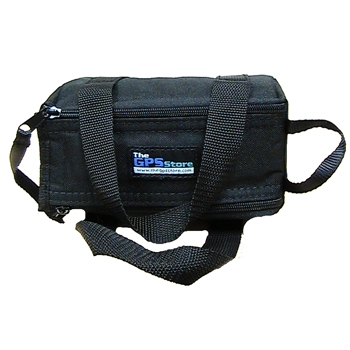GPS Units - Accessories
Autopilots - Marine
Cameras
Chart Plotters
Communications
Dash Cameras
EPIRBs & PLBs
Fitness, Sports & Golf
Fishfinders
Garmin Fitness
GPS-Fishfinders
GPS-GMRS Radios
Maps & Software
Hiking & Handheld GPS
Wearables
Laptop & Tablet GPS
Marine Electronics
Motorcycle Units
Network Systems
Off Road GPS
Radars
Safety Equipment
Starlink Mounts
Stereos & Speakers
Top Choice Products
Tracking Devices
Trolling Motors
Truck & RV GPS
VHF Radios
Accessories
Garmin Accessories
Marine Accessories
Transducers
Actisense
B&G
BilgeBuddy
C-Map Charts
CMOR Charts
Flir Thermal Imaging
Fujinon Marine Binoculars
Furuno Marine Electronics
Fusion Stereos
Garmin GPS
Icom Marine Radios
JL Audio
KVH Satellite TV
Lowrance Electronics
Lumishore LED Lights
Magellan GPS Systems
Navionics Charts
Ocean Signal
Pelican Lights
Poly Planar Stereos
Raymarine Electronics
Scanstrut
Seaview Mounts
Shakespeare
Simrad Marine
Sionyx
Si-Tex Marine Electronics
Standard Horizon
Superior Life Saving Life Rafts
USGlobalSat
Veratron
Vesper Marine
How to Protect Your Portable GPS Unit
Most GPS owners just mount the device on their dashboard and never think twice about it. While the device should definitely be mounted while in use, it’s a good idea to take it down and care for it so that the device lasts as long as possible. Not only that, but following these care and maintenance instructions will reduce the chances of you losing the device from theft.
Bags
It’s important to have a bag to hold the GPS when it’s not in use. There are many bags made specifically for GPS devices, but you can also use an insulated camera bag. The bag serves several purposes. First of all, it protects the device against high and low temperatures. These devices can be destroyed or damaged in the summer or winter. Keeping them mounted and exposed can dramatically reduce the longevity of your device.
Place the device in the bag whenever you’re not using it. This will ensure that the GPS is protected if the temperature randomly changes, and it ensures that the GPS gets as little sunlight as possible.
Another important aspect of using a bag is that it keeps the GPS hidden from view. Many thieves will target cars that have GPS units because they are easy to steal and sell. Hiding them from view will reduce the likelihood of your car being targeted.

Screen Maintenance
The screen is one of the most important elements of the GPS. Most owners will find that the screen is either less responsive or duller after a few months or years. You can protect the screen by using a screen protector. This will guard against damage from the sun. It will also keep the oil from your skin from interacting with the screen, which can lead to damage.
You should never firmly poke the screen. This will damage the screen’s integrity, and it’s one of the biggest reasons for screen failure. It’s much better to gently touch the screen. GPS devices are very sensitive and responsive. If the device isn’t registering your touch, then ensure that you’re touching the right area.
It’s also a good idea to clean the screen at least once a month using wipes specifally made for electronic devices or a screen cleaning kit. Never use harsh soaps because they will damage the screen.
Protect the CPU
Just like computers and smartphones, every GPS has a CPU. This piece of hardware keeps the GPS running, and it ensures that it carries out processes like finding satellites and guiding you to your destination. If the CPU is damaged, then the device will have a harder time finding a signal. If the CPU gets too old or damaged, then the device won’t work at all.
You can protect the CPU by properly using the GPS. The CPU has to work much harder if it’s difficult to find a satellite, such as when you’re in a building, or if the device is on for a very long time. Just limit how long you use the GPS and ensure that you only use it while driving. If you use it in a building, then the CPU will give out sooner than expected.
Avoid Power Surges
Most people don’t think about power surges in their car because they happen much more often in homes. At the same time, there is one thing that you can do to protect your GPS against power surges. When you start the car, the battery will surge for a few seconds. If the GPS is plugged in before turning on the car, then it will be exposed to about 20 percent more power than it can handle. While this may not be an issue at first, it will eventually destroy the battery.
Just make sure that the GPS is unplugged before turning on the car. You should also turn the device off whenever you don’t use it so that the battery will last as long as possible. If the battery degrades, then it will be more susceptible to surges.
Given proper maintenance of your GPS device, it it likely to last for many years. While these devices are quite durable, they are susceptible to damage if you aren’t careful. Maintaining the device is quite simple. Not only will this protect your asset, but your GPS will also work much better.












